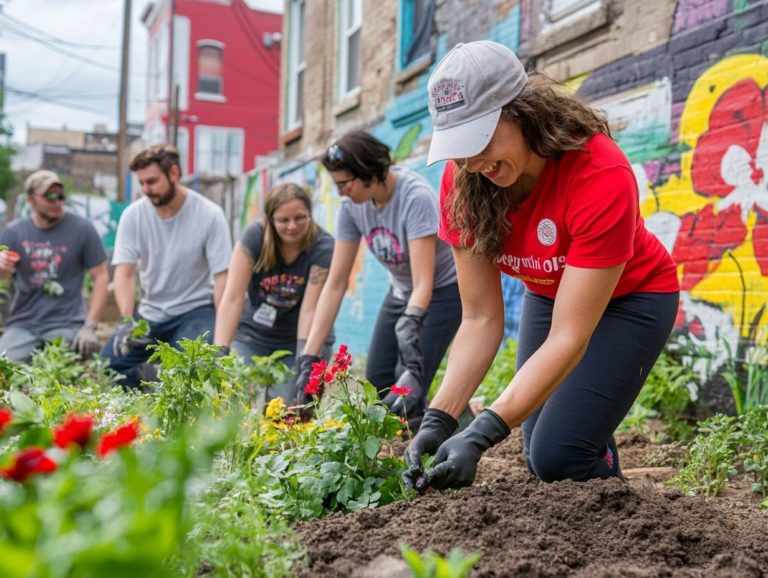5 Strategies for Building Cultural Competence
Cultural competence, or the ability to understand and interact well with people from different backgrounds, is more vital than ever in our interconnected world. By understanding and respecting diverse cultural backgrounds, you not only enrich your personal experiences but also elevate collaboration within workplaces and communities.
This article outlines five effective strategies for building your cultural competence, guiding you from recognizing your own cultural identity to honing your empathy and active listening skills.
Delve into the significance of cultural competence, its numerous benefits, and the common misconceptions that often cloud judgment. This exploration will empower you to move through different environments with greater understanding and care.
Discover how to cultivate meaningful connections and foster inclusive environments that celebrate diversity. Start your journey to cultural competence today!
Contents
- Key Takeaways:
- 1. Understand Your Own Cultural Identity
- 2. Educate Yourself About Different Cultures
- 3. Develop Empathy and Open-Mindedness
- 4. Practice Active Listening and Communication
- 5. Be Willing to Adapt and Learn from Others
- Why Is Cultural Competence Important?
- How Can Cultural Competence Benefit Individuals and Organizations?
- What Are Some Common Misunderstandings About Cultural Competence?
- How Can Cultural Competence Be Applied in Different Settings?
- What Are Some Challenges in Building Cultural Competence?
- How Can Cultural Competence Be Measured and Evaluated?
- Frequently Asked Questions
- Why should we care about cultural competence?
- What are the five strategies for building cultural competence?
- How can education and training help in building cultural competence?
- What is the role of self-reflection in building cultural competence?
- How can developing cultural humility contribute to cultural competence?
- Why is building relationships with diverse communities important for cultural competence?
- How can promoting inclusivity and equity help in building cultural competence?
Key Takeaways:
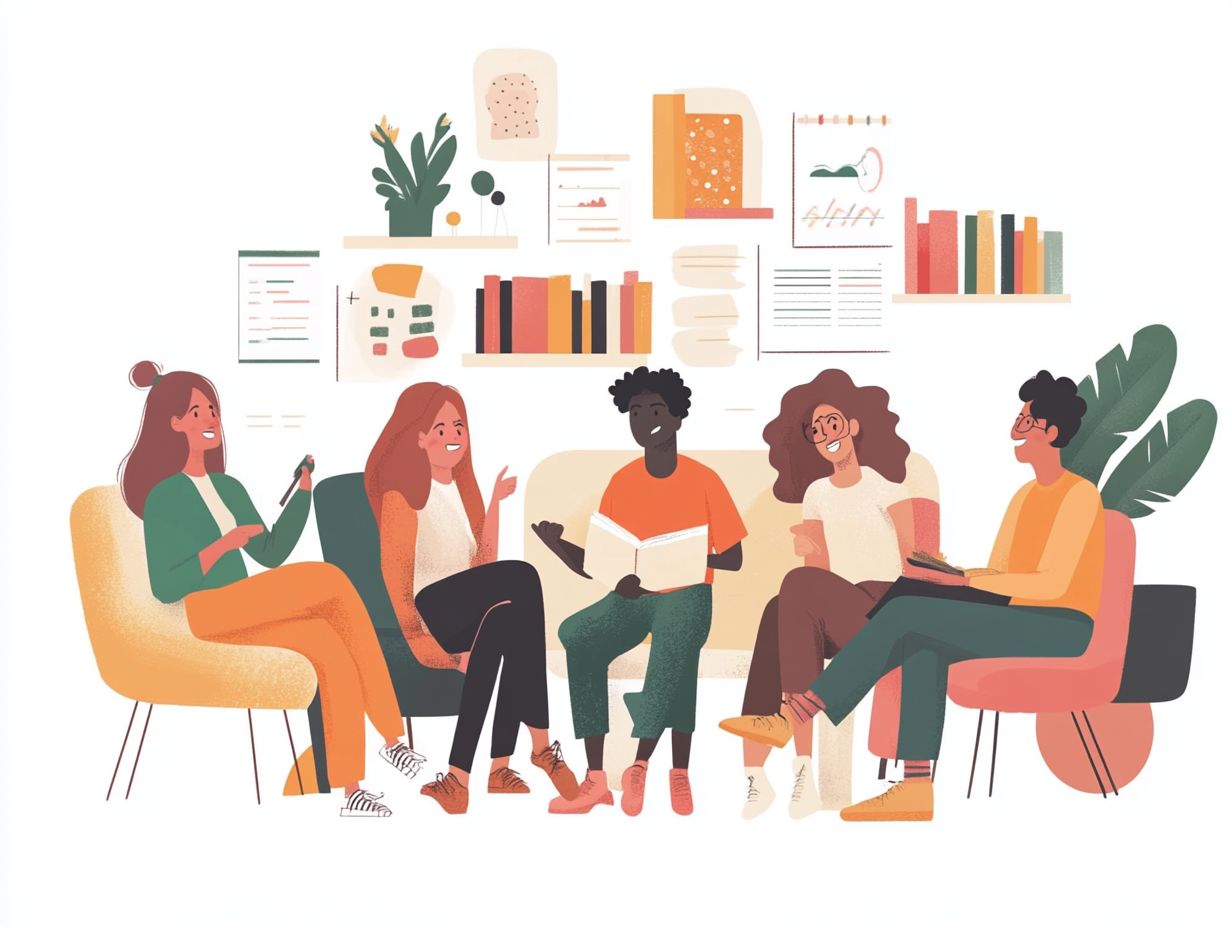
- Understand your own cultural identity and biases to better understand and respect others.
- Educate yourself about different cultures to increase awareness and promote inclusivity.
- Develop empathy and open-mindedness to build meaningful connections and bridge cultural gaps.
1. Understand Your Own Cultural Identity
Understanding your own cultural identity is a crucial step in developing cultural competence. It allows you to reflect on your cultural attitudes, values, and the unique behaviors that influence your interactions in an increasingly global society.
By examining your own cultural worldview, you can gain a deeper appreciation for how your experiences shape your perception of cultural differences. This ultimately enhances your ability to communicate effectively across diverse contexts.
This journey of self-reflection is vital for fostering a sense of belonging and promoting empathy. You can employ various methods, such as journaling to document your thoughts and experiences related to your cultural background, or engaging in open conversations with friends and family to delve deeper into your heritage and traditions.
These activities encourage a richer understanding of your own identity, which is essential for navigating cross-cultural communication. In educational and professional settings, this awareness can create more respectful interactions, helping you bridge gaps and cultivate collaborative relationships that embrace different cultural perspectives.
2. Educate Yourself About Different Cultures
Educating yourself about different cultures fosters cultural awareness and enhances your ability to navigate cultural differences. This enriches your understanding of diverse practices, values, and communication styles.
This knowledge not only elevates your cross-cultural communication skills but also gives you the power to build meaningful relationships in various intercultural settings. To deepen this understanding, immerse yourself in literature from different cultures; it offers invaluable insights into their histories and worldviews.
Participating in cultural events, such as festivals, exhibitions, and workshops, allows you to experience firsthand the vibrancy and nuances of diverse traditions. Getting involved in community activities focused on cultural exchange can bridge gaps and cultivate empathy.
Recognizing and appreciating cultural references plays a crucial role in fostering respect, while cultural sensitivity encourages constructive dialogues. This ensures that your interactions are both respectful and fruitful.
By embracing these strategies, you can navigate diverse landscapes with greater confidence and awareness.
3. Develop Empathy and Open-Mindedness
Developing empathy and open-mindedness is vital for fostering cross-cultural attitudes. These attitudes lead to harmonious interactions in our global society.
By embracing being aware of different cultures and receptive teaching practices, you can create an environment where diverse perspectives are valued.
Such environments are crucial in educational settings, where students from various backgrounds come together. Active listening nurtures empathy by encouraging authentic engagement with each other’s experiences.
Imagine a classroom promoting discussions around cultural stories. This approach helps students appreciate different viewpoints and cultivates mutual respect.
When educators show open-mindedness, it inspires students to adopt similar attitudes. This enhances communication and collaboration.
Such respect lays the groundwork for a richer, more inclusive learning experience for everyone involved.
4. Practice Active Listening and Communication
Practicing active listening and effective communication skills is essential for achieving cultural sensitivity in diverse environments. By honing your skills to understand and communicate with people from different cultures, you can foster strong community relationships.
Active listening techniques, like paraphrasing what has been said and asking clarifying questions, ensure that the intended message is accurately received. These practices demonstrate your genuine interest in the speaker s perspective.
Adapting your communication style is crucial, as cultural nuances can greatly influence how messages are perceived. This adaptability, rooted in cultural awareness, ensures you engage effectively and respectfully.
5. Be Willing to Adapt and Learn from Others
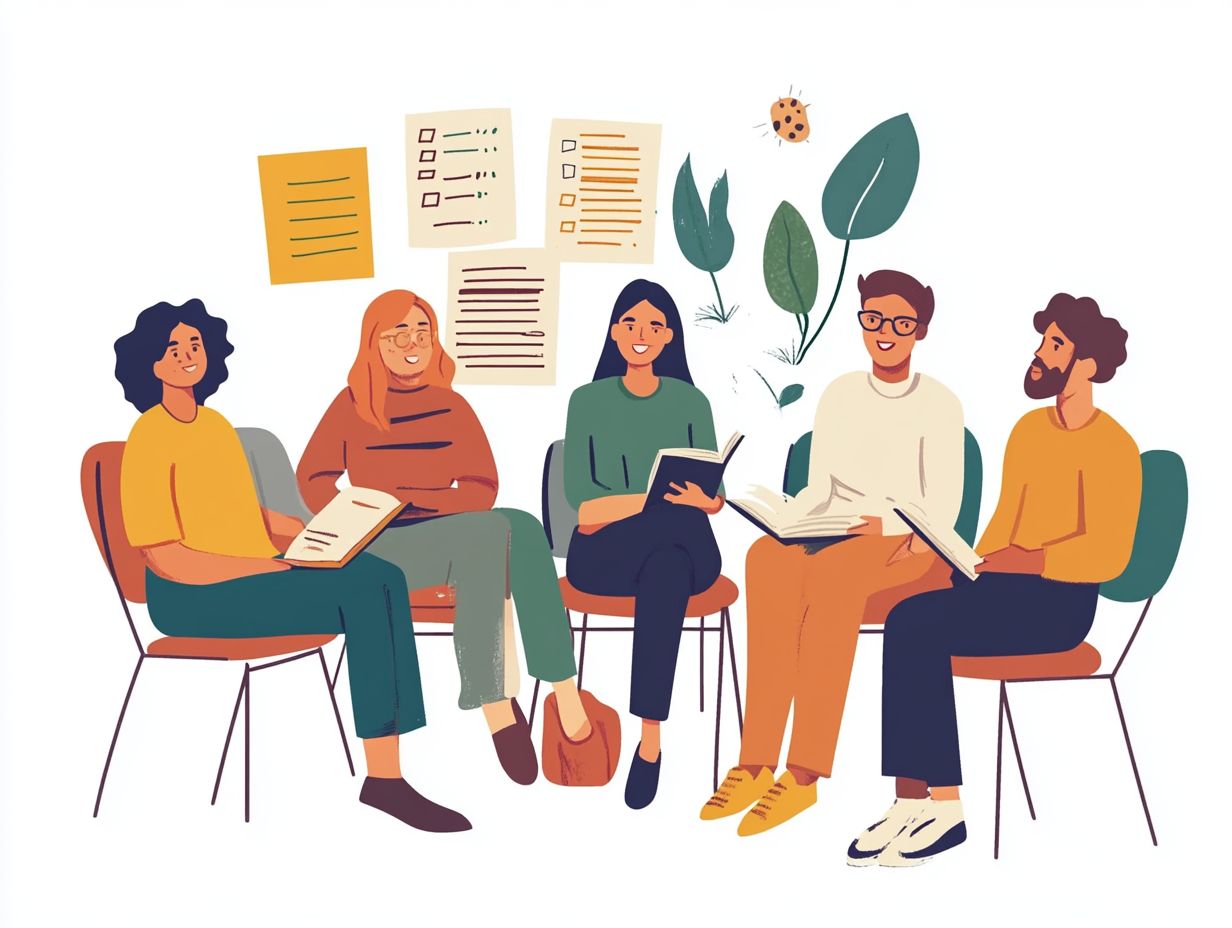
Being open to learning from others enriches your cultural experiences. This creates a collaborative learning environment where diverse educators’ approaches are celebrated.
When you approach interactions with an open mind, you foster a space where new ideas can thrive, and differences can be appreciated instead of feared.
For instance, in a global business setting, a manager who tailors their leadership style to meet their team’s cultural expectations often witnesses a boost in morale and productivity.
Similarly, a student studying abroad who embraces local customs is likely to forge deeper relationships, significantly enhancing their learning experience.
These examples illustrate how flexibility in your viewpoints and practices can lead to remarkable personal growth and contribute to a more inclusive, effective professional environment.
Why Is Cultural Competence Important?
Cultural competence is the ability to understand, communicate with, and effectively interact with people from different cultures. It holds significant importance in today s global society, as it enhances your cultural awareness and fosters educational equity while refining customer service skills across various sectors.
By understanding and respecting cultural differences, you and your organization can create inclusive environments that promote positive interactions and relationships. This ultimately leads to better outcomes in diverse settings.
Take education, for example. When teachers adopt culturally competent practices, they engage students from various backgrounds more effectively. This results in improved academic performance and reduced dropout rates.
In healthcare, providers who grasp cultural nuances are more adept at delivering tailored patient care. This enhances trust and satisfaction, often translating to better health outcomes.
Customer service representatives trained in cultural competence can address the needs of a diverse clientele effectively. This ensures higher satisfaction and loyalty.
Ultimately, when you prioritize this competency, you not only boost community relations but also drive overall success in an increasingly interconnected world.
How Can Cultural Competence Benefit Individuals and Organizations?
Cultural competence opens up exciting opportunities for you and your organization! It enhances educational experiences, fosters global interactions, and yields superior outcomes in customer service.
By cultivating this vital skill, you can better address the diverse needs of your clientele while creating a more inclusive and productive workplace.
This capability gives you the power to communicate effectively with colleagues and clients from various backgrounds. It paves the way for innovative solutions and sparks creativity.
For instance, a culturally aware team can tackle challenges from multiple perspectives, ultimately leading to more informed decision-making.
Investing in cultural competence training boosts your team dynamic and sharpens interpersonal skills, making it essential for success! It strengthens team dynamics, resulting in reduced employee turnover and elevated morale.
As you begin to feel valued and understood, your commitment to the organization deepens. This, in turn, boosts customer satisfaction. Clients are far more likely to engage with businesses that reflect their values and appreciate their unique viewpoints.
What Are Some Common Misunderstandings About Cultural Competence?
Common misunderstandings about cultural competence often arise from a lack of cultural knowledge and sensitivity. This leads to misconceptions that can impede effective communication and understanding across cultures.
Recognizing these biases in educational and professional settings is vital for creating a fair and culturally aware environment.
You may think that cultural competence can be achieved through a quick workshop or a single training session. However, it s a dynamic and ongoing journey.
It’s not just about learning facts it’s about reflecting on your beliefs and letting go of biases. Grasping cultural nuances requires time and dedicated effort.
You need to continuously educate yourself, remain open-minded, and actively engage with diverse perspectives. By committing to lifelong learning, you can enhance your ability to interact meaningfully and respectfully within various communities.
How Can Cultural Competence Be Applied in Different Settings?
Cultural competence can enhance cross-cultural skills across various settings. This includes educational institutions, healthcare facilities, and corporate environments.
In each of these contexts, understanding the unique cultural dynamics and community involvement is essential for fostering meaningful interactions.
For example, in schools, you can implement culturally relevant curricula that reflect the diverse backgrounds of your students. This promotes an inclusive learning environment.
In the workplace, leaders can introduce training programs that focus on diversity and inclusion. These programs encourage employees to share their cultural experiences, ultimately cultivating a more cohesive team atmosphere.
In healthcare settings, providers can elevate their practice by actively listening to patients cultural beliefs and preferences. This builds trust and enhances health outcomes.
By embracing these tailored approaches, you can facilitate better communication and collaboration among individuals. This nurtures stronger relationships and minimizes potential misunderstandings.
What Are Some Challenges in Building Cultural Competence?
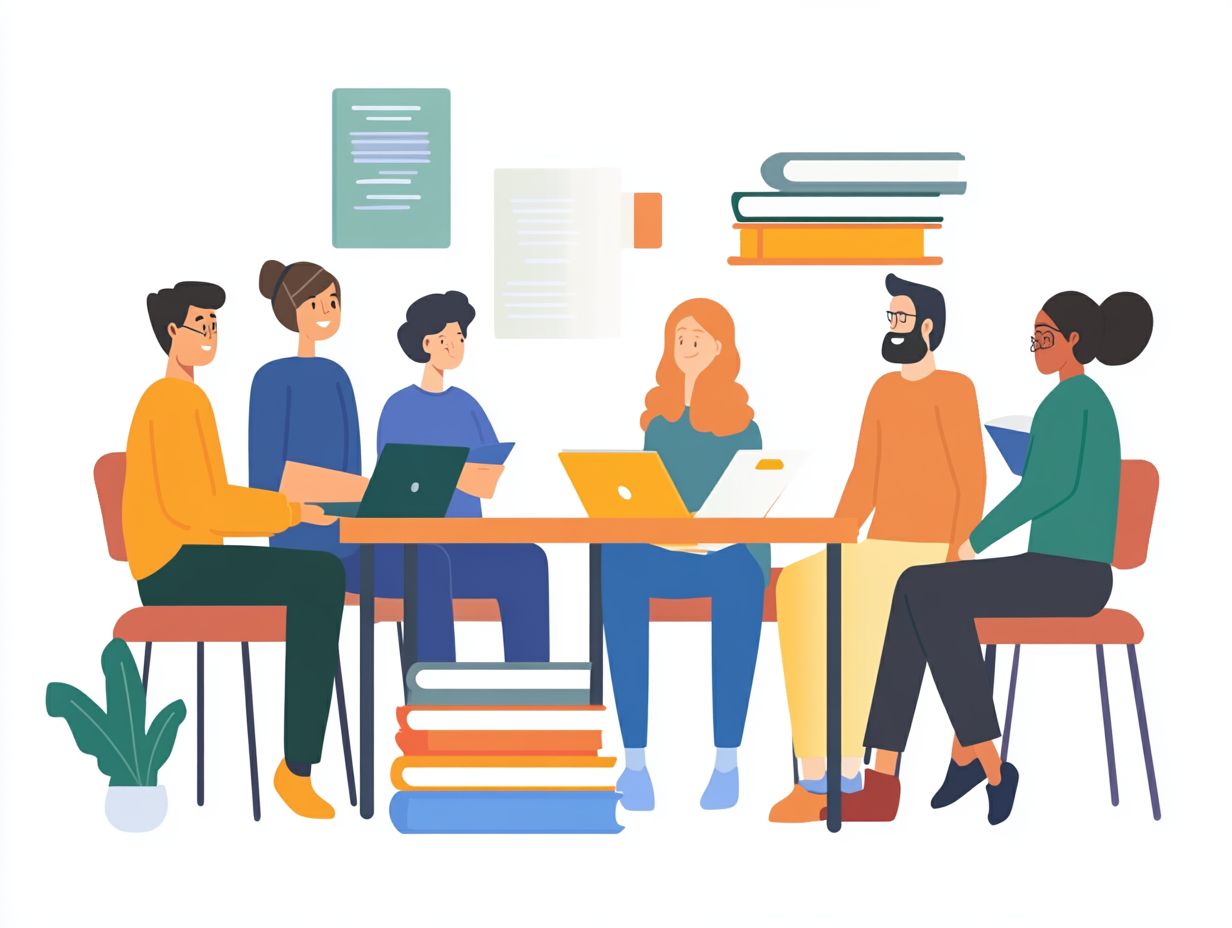
Building cultural competence comes with its share of challenges, including navigating cultural dynamics, overcoming biases, and ensuring effective cross-cultural communication. For valuable insights, consider exploring 5 tips for navigating cultural differences.
These obstacles demand thoughtful educational strategies and a steadfast commitment to ongoing learning and self-reflection.
Common barriers like deep-rooted stereotypes and limited exposure to diverse cultures can significantly impede your progress. You might find yourself unintentionally relying on preconceived notions, which can distort your understanding and create communication rifts.
To tackle these issues, it s essential to jump into comprehensive training programs that boost cultural sensitivity and awareness.
Engaging in community initiatives like cultural exchanges and collaborative projects can offer valuable firsthand experiences. By actively immersing yourself in diverse settings, you broaden your perspective and cultivate a more inclusive mindset.
How Can Cultural Competence Be Measured and Evaluated?
Measuring and evaluating cultural competence is crucial for understanding its effectiveness and impact on educational outcomes, cross-cultural skills, and cultural awareness.
By utilizing various assessment tools and methods, you can gain valuable insights into your progress and identify areas for improvement.
Surveys can effectively capture feedback from participants about their perceptions and experiences. Meanwhile, observational studies allow for a deeper analysis of interactions within diverse environments.
Performance evaluations provide concrete evidence of how individuals apply their cultural knowledge in real-life situations, offering a tangible measure of competence.
Incorporating feedback mechanisms into these assessments is essential for fostering a culture of learning. By establishing ongoing reviews, you create an environment that encourages adaptability and responsiveness to the evolving needs of diverse populations.
Frequently Asked Questions
Why should we care about cultural competence?
Cultural competence is the ability to understand and effectively interact with people from diverse cultures. It is important because it allows for better communication, understanding, and respect among individuals from different backgrounds.
What are the five strategies for building cultural competence?
The five strategies for building cultural competence are: education and training, self-reflection and awareness, developing cultural humility, building relationships with diverse communities, and promoting inclusivity and equity.
How can education and training help in building cultural competence?
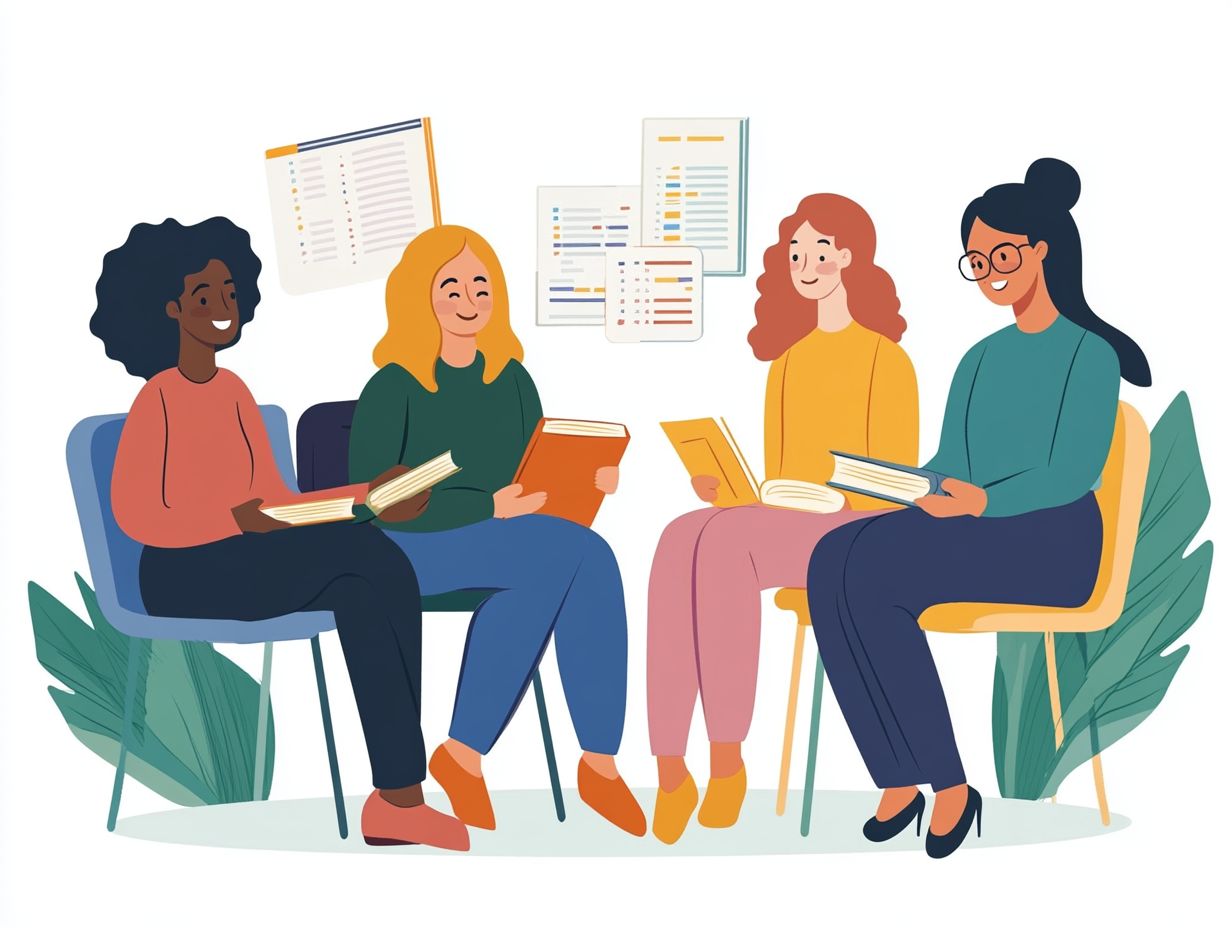
Education and training provide knowledge about various cultures. They help develop sensitivity and awareness, which are key to understanding others.
What is the role of self-reflection in building cultural competence?
Self-reflection helps individuals identify their own biases and beliefs about different cultures. Understanding one s cultural identity is crucial for meaningful interactions.
How can developing cultural humility contribute to cultural competence?
Embracing cultural humility means recognizing that your perspective is one of many. This openness fosters deeper respect and understanding of diverse cultures.
Why is building relationships with diverse communities important for cultural competence?
Connect with diverse communities for genuine, enriching experiences! Learning directly from others enhances your understanding of their perspectives.
How can promoting inclusivity and equity help in building cultural competence?
Creating an environment where all cultures are valued breaks down barriers. This promotes understanding and acceptance among diverse backgrounds.

